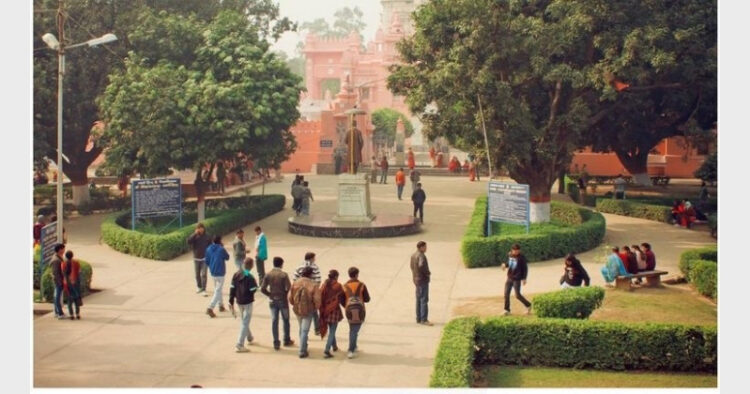“High performing Indian universities will be encouraged to set up campuses in other countries, and similarly, selected universities, e.g., those from among the top 100 universities in the world will be facilitated to operate in India.” This is one of the key components of the New Education Policy unveiled by the Ministry of Education last July.
If this benchmark is serious, no Indian university will open campuses even within the country, let alone in far-off lands. The reason is simple and stark. If one excludes IIS and IITs, no Indian universities figure within the top 600 in the latest Time Higher Education ranking. Yes, none. Even IIS and IIT do not come within the top 300 ranks. One can fault such indexes over methodology, aggregation, chosen indicators and even national bias, but the big picture does not lie.
This is the sorry state of affairs of higher education in the country. Over the decades, it has been reduced to be an appendage of the establishment, ruling parties, political correctness or ideological biases and, in the process, lost their academic rigor and global competitiveness. Heading academic institutions should be more than personal milestones, and most often, it is not.
It is essential to recognise that higher education is not a fundamental right but a luxury for millions of Indians. Unless one has or acquires the necessary skills, aptitude and purpose, doctorates will largely be ornamental. Specialising on the social, cultural or political developments about far-off lands, the prime focus of humanities and social sciences, requires domain expertise, linguistic skills, years of dedication and sophistication. These add to the corpus of knowledge and improve the quality of the society, but their utility and relevance are not always immediate or tangible.
Studying the political longevity of Prime Minister Benjamin Netanyahu, for example, implies a willingness and ability to engage with the best minds on Israel. The same applies to all disciplines; unless one is prepared to join, contribute or challenge the larger body of knowledge globally, higher education becomes irrelevant. Hence, every educator and the educational institution must ask one uncomfortable but essential question: how am I contributing to the global knowledge pool?
Part of the problem lies in the non-availability of job opportunities. There is a pervasive disjoint between doctoral theses and employment opportunities in the country. Academic jobs are based on the Master’s degrees than the doctorates. Specialisation has no relevance to college or even university jobs; Master’s and not doctoral degrees are the ‘essential qualification’ even in universities. Hence, a vast majority of Ph.D. holders earn their livelihood either away from universities or teach subjects unrelated to the doctoral theses. Recently, the Israeli embassy in New Delhi named someone with a doctorate on water as its water attaché. How many Indian doctorates will find a job in his/her chosen field of specialisation?
Is there a way out? Higher education has to be innovative, advancing and competitive. Being a topper in my village is a personal milestone, but this can never steer an institution. Indian universities and other higher education institutions have to be globally competitive.
Ideally, higher education should fend for itself. However, even in advanced industrialised countries, state support is critical for higher education, and hence in the Indian context, government funding cannot be avoided, at least in short to medium term. But the state funding has to be prioritised prudently.
The financial hardships emanating out of Covid provide an opportunity to rationalise higher education. The global ranking should be the government’s approach in determining the extent of financial support to all higher education institutions in the country. Higher the ranking, greater should be financial support, and institutional budgets must be linked to performance.
India cannot be a global player without expanding and benefitting from the knowledge economy. National ranking can be self-satisfying for private institutions but is insulting to state-funded institutions. The frog-in-the-well approach to higher education will have to end. The government can only lay down ground rules, and broad guidelines but only individuals and institutions can establish gold standards of higher education.
So, when the MoE appoints the next head of a premier educational institution, the mandate must be: improve your global ranking, if you want continued financial support.
Professor P R Kumaraswamy teaches at Jawaharlal Nehru University, New Delhi.














Comments